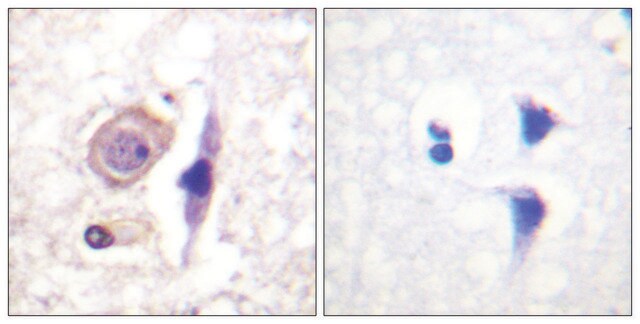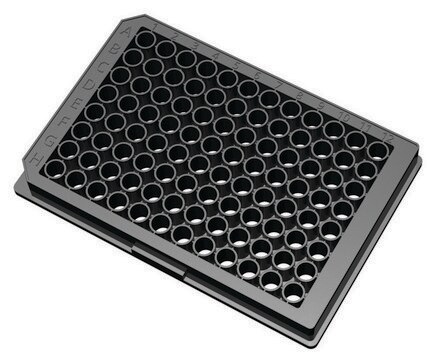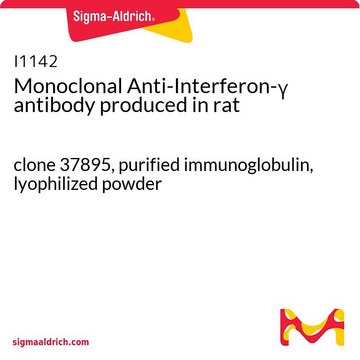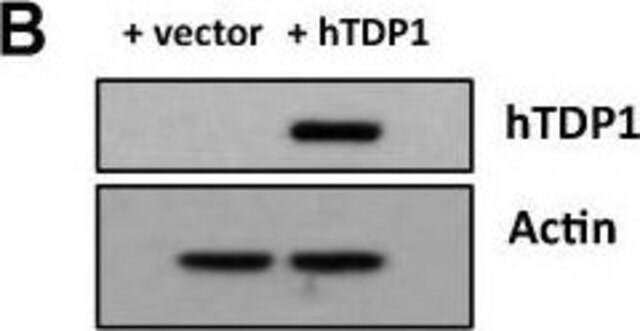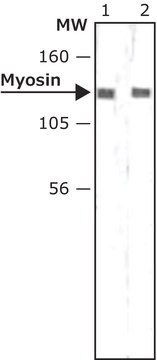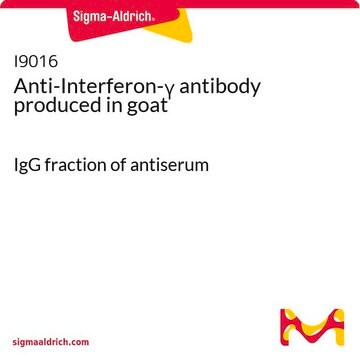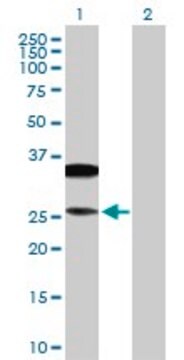I5152
Anti-Interferon-γ Receptor 1 (IFN-γ R1) antibody produced in goat
affinity isolated antibody, lyophilized powder
Synonym(s):
Anti-CD119, Anti-IFNGR, Anti-IMD27A, Anti-IMD27B
About This Item
Neutral
WB
neutralization: suitable
western blot: 0.1 μg/mL
Recommended Products
biological source
goat
Quality Level
conjugate
unconjugated
antibody form
affinity isolated antibody
antibody product type
primary antibodies
clone
polyclonal
form
lyophilized powder
species reactivity
human
technique(s)
immunocytochemistry: 5-15 μg/mL using immersion fixed human peripheral blood mononuclear cells
neutralization: suitable
western blot: 0.1 μg/mL
isotype
IgG
UniProt accession no.
storage temp.
−20°C
target post-translational modification
unmodified
Gene Information
human ... IFNGR1(3459)
General description
Immunogen
Application
Physical form
Disclaimer
Not finding the right product?
Try our Product Selector Tool.
Storage Class Code
11 - Combustible Solids
WGK
WGK 3
Flash Point(F)
Not applicable
Flash Point(C)
Not applicable
Choose from one of the most recent versions:
Already Own This Product?
Find documentation for the products that you have recently purchased in the Document Library.
Our team of scientists has experience in all areas of research including Life Science, Material Science, Chemical Synthesis, Chromatography, Analytical and many others.
Contact Technical Service